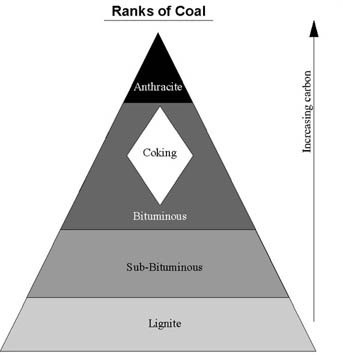Alberta coal
Alberta’s coal mining started in the late 1800s.
Coal was the energy source that boosted the industrial revolution of the 19th century and launched the electric era in the following century.
It was the primary source of energy until the late 1960s when it was overtaken by oil. Coal still supplies just over a third of global electricity generation. (Source: International Energy Agency)
Coal mining in Alberta is regulated by the Alberta Energy Regulator (AER).
Mining activities and reclamation are subject to review and approval through Alberta Environment and Protected Areas. Alberta Labour is responsible for mine safety. Environmental management is an important part of developing, running and closing down a mine. Mining companies develop and carry out plans to minimize impacts on air, land, water and wildlife. Companies use a variety of techniques to reclaim and restore mined lands.
Coal types
Coal is organic. It is a mineral formed from the remains of land-based plants buried hundreds of millions of years ago and subjected to tremendous heat and pressure.
Coalification has an important bearing on coal's physical and chemical properties and is referred to as the “rank” of the coal. In general, the longer the organic material is subjected to heat and pressure, the higher its rank and the more carbon content will be contained per unit of weight.
Coal is ranked according to:
- energy value – how much energy is released when coal is burned
- degree of transformation into carbon
- moisture content – coals high in carbon and low in moisture are ranked the highest
- composition – coal is predominantly carbon but may also contain varying amounts of hydrogen, oxygen, nitrogen and sulphur
Coal ranks
Lignite and subbituminous coal (brown coal) are low-ranked coals
Bituminous coal and anthracite hard coals) are high-ranked coals
| Coals | Typical use |
|---|---|
| Low-ranked - Lignite and subbituminous coal (brown coal) | electricity generation |
| High-ranked – Bituminous coal and anthracite (hard coals) | thermal purposes |
| Premium-grade bituminous (metallurgical coal, coking coal, or steelmaking coal) | metallurgical purposes or sometimes for household cooking and heating fuel |
| Anthracite, the highest-ranked coal (smokeless) | metallurgical purposes or sometimes for household cooking and heating fuel |
Coal statistics
Coal reserves and resources 2022 raw coal production
| Resources | Volumes |
|---|---|
| Total production | 13.2 million tonnes |
| Subbituminous coal | 4.7 million tonnes |
| Bituminous coal | 8.5 million tonnes |
Royalty collected
The province collected $146.2 million in royalties on province-owned coal produced in 2022.
AER reports
- T26 Alberta Coal Industry Monthly Statistics, provides annual production by, month, coal type, raw versus clean coal, product sale and disposition and mine.
- ST45 : operating and abandoned coal mines in Alberta, provides information on number of mines, coal reserves, production and disposition, by coal type and by destination, it also includes the coal mine mapviewer.
- ST98 Alberta’s Energy Reserves and Supply/Demand Outlook
- Coal products and services catalogue
Department reports and maps
- Coal and Mineral Development Annual Reports, from the Coal and Mineral Development Branch, provide a yearly overview of coal, metallic and industrial mineral activity in Alberta.
- Interactive maps, the interactive coal map shows dispositions or agreements.
Contact
Connect with the Coal and Mineral Development Unit:
Hours: 8:15 am to noon and 1 pm to 4 pm (open Monday to Friday, closed statutory holidays)
Phone: 780-427-7707
Toll free: 310-0000 before the phone number (in Alberta)
Email: cmd.energy@gov.ab.ca
Edmonton
Address:
Alberta Energy and Minerals
Coal and Mineral Development Unit
North Petroleum Plaza
9945 108 Street *
Edmonton, Alberta T5K 2G6
* Couriers, please report to the 2nd floor.
Calgary (drop-off location only)
Address:
Alberta Energy and Minerals
300, 801 6 Avenue SW
Calgary, Alberta T2P 3W2
